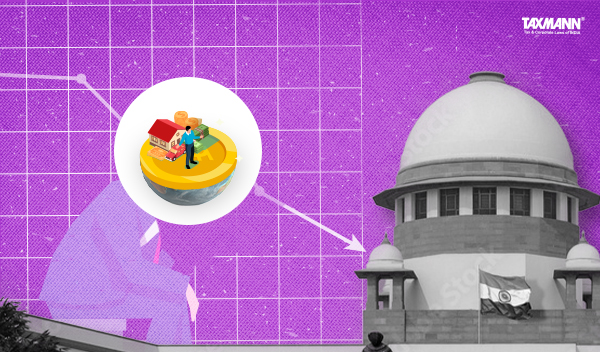FA 2017 Amendment Restricting Set-off of House Property Loss to Rs. 2 Lakh is Constitutionally Valid | HC
- Blog|News|Income Tax|
- 3 Min Read
- By Taxmann
- |
- Last Updated on 6 June, 2024

Case Details: Sanjeev Goyal vs. Union of India - [2024] 163 taxmann.com 122 (Delhi)
Judiciary and Counsel Details
- Yashwant Varma & Purushaindra Kumar Kaurav, JJ.
- Dr. M.K. Pandey & Dr. V.V. Chaudhary, Advs. for the Petitioner.
- Ms Pratima N. Lakra, CGSC, Ms Vrinda Baheti, Ms Kashish G. Baweja, Advs., Puneet Rai, SSC, Rishabh Nangia, JSC, Ashvini Kumar & Nikhil Jain, Advs. for the Respondent.
Facts of the Case
By way of the instant writ petition, the Delhi High Court was called upon to examine the constitutional validity of Section 31 of the Finance Act 2017, which has brought about an amendment in the Income-tax Act 1961 by inserting sub-section (3A) to Section 71.
The petitioner was a government employee who claimed to have constructed his house in April 2014 by incurring an expenditure of ?1.35 crore. The said construction was financed through a housing loan, partially raised from the IDBI Bank and the rest from his father, amounting to ?85,00,000 and ?50,00,000, respectively.
Since the house was constructed from borrowed capital, the amount of interest payable on such capital was eligible for deduction from the head “Income from house property”. The income chargeable under the said head was required to be computed after making a deduction of the interest payable on such capital. The said deduction was also eligible for set-off as per the provisions of Section 71 of the Act.
However, by virtue of the Finance Act 2017, the threshold limit for set off of loss under the head “Income from house property” against any other head of income was restricted to an amount of ?2 lakh for a particular Assessment Year with effect from 01.04.2018, i.e., for AY 2018-19 and subsequent AYs.
The petitioner contended that the amendment was prejudicial to his interest as he could not have foreseen that he would be disentitled from claiming the benefits of the provisions in question. The amendment caused a financial burden on the petitioner, leaving him with a meagre disposable income to run the livelihood. Further, the amendment is against the principle of fairness, which must be the basis for every legal rule.
High Court Held
The High Court held that the subsequent amendment in Section 71 only aims at capping the set off of losses under the head of “Income from house property” from any other head of income at ?2 lakh. It only attempts to circumscribe the indefinite amount of set-off to a certain amount. The change introduced by the legislation reflects the larger policy of the legislature. It has an equalizing effect on all the taxpayers claiming any deduction under the abovementioned head.
The amendment is applicable to all the category of persons without any apparent or real discriminatory classification. It does not have the effect of creating any separate class or classification. The alteration in the manner of imposing tax in the present case cannot be said to deprive the taxpayer of a benefit. Instead, it is tantamount to a realignment of the existing provisions, bearing in mind the broader economic and policy considerations, which the legislature is duly empowered to do.
Therefore, the amendment applies to all persons without any apparent or real discriminatory classification. As a sequitur, it cannot be said to be against the tenets of equality encapsulated in Article 14 of the Constitution.
List of Cases Referred to
- SEBI v. Rajkumar Nagpal 8 SCC 274 (para 21)
- Andhra Pradesh v. Smt P. Lakshmidevi AIR 2008 SC 1640 (para 31).
Disclaimer: The content/information published on the website is only for general information of the user and shall not be construed as legal advice. While the Taxmann has exercised reasonable efforts to ensure the veracity of information/content published, Taxmann shall be under no liability in any manner whatsoever for incorrect information, if any.



 CA | CS | CMA
CA | CS | CMA
